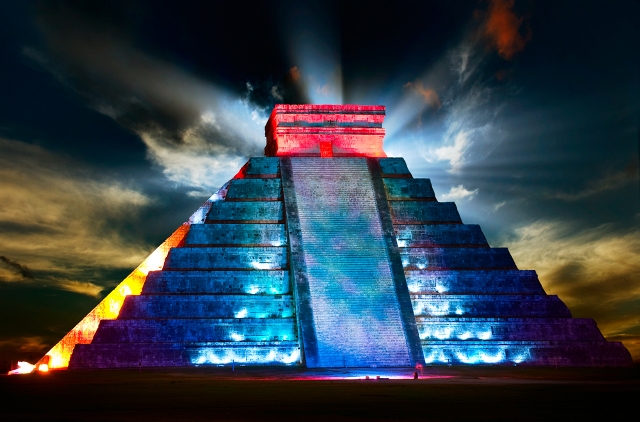Chichen Itza, the iconic ancient Mayan city located in Mexico, has maintained as one of the main reasons for tourists to visit Yucatan State, among other archaeological sites and touristic areas.
Kukulcan pyramid, recognized globally thanks to its naming as New World Wonder and World Heritage, it has continued receiving the attention to which it was used to before global pandemic came into place.
Despite high temperatures of its location, and the mandatory mask usage, tourists keep looking at the structure as an object of admiration, exploration, image capture and studying. It makes total sense, since anyone researching about this pyramid could be highly impressed with all the references implicit in such majestic Mayan work.
There was some fear regarding the possible closure of the archaeological site due to several factors, including the pandemic declaration and internal affairs between the National Institute of Anthropology and History and Yucatan Culture Ministry. This fear has disappeared as tourists demonstrate organization capabilities and respect to hygiene and safety measures.

Chichen Itza Light_Sound Show (Image: Google)
It is worth mentioning that visitors on the way to Chichen Itza come across other towns where they tend to make shop, restroom and exploration stops. This makes the local economy to fluctuate, making work the gears that conform the big and complex commerce structure interconnecting both little and big Yucatan towns.
By now, everything points to, despite the recent change of sanitary traffic light in Quintana Roo, neighboring state and main tourist referral to Chichen Itza, the archaeological site will keep its doors open under capacity control and hygiene standards.
Tourists visiting Chichen Itza should take into consideration that it is no longer possible to climb up neither the main pyramid nor many of the other buildings for conservation purposes. Anyhow, the Thousand Column Group can be still explored closely, same as the Observatory, the Church and other important Mayan structures.
In order to capture high quality images with professional gear, a fee is required to be covered to be able to access with such gear, including Go-Pro cameras. For drone usage, it is mandatory a special permission that requires the payment of a special fee. Collected money is used for the restoration of the site, giving the opportunity for future generations to get close and to know such a culturally and historically important monument in the southeast area of Mexico.
One of the most popular ways for visitors to get to the archaeological site is by excursions promoted as Chichen Itza tours, ranging options from a simple tour to a whole Yucatan Peninsula experience with regional dishes and visit to a cenote.
The most common Chichen Itza tour is the Classic tour, which includes a visit to an open cenote where tourists experience diving into what Mayans considered as entrances to the underworld; a buffet meal with regional dishes in a nearby Yucatan location, including the tasty cochinita pibil characteristic of these towns; the main stop at Chichen Itza with a guided tour followed by some spare time at the Archaeological site; and the final stop at Valladolid.
Valladolid is a magic town in Yucatan; which is visited in order for tourists to have a reference on how the architecture changed from the Mayan times to the arrival of Spanish men.
For Yucatan’s fortune, it seems that this Mayan treasure will still be an access door for this highly cultural state of the Mexican republic.


